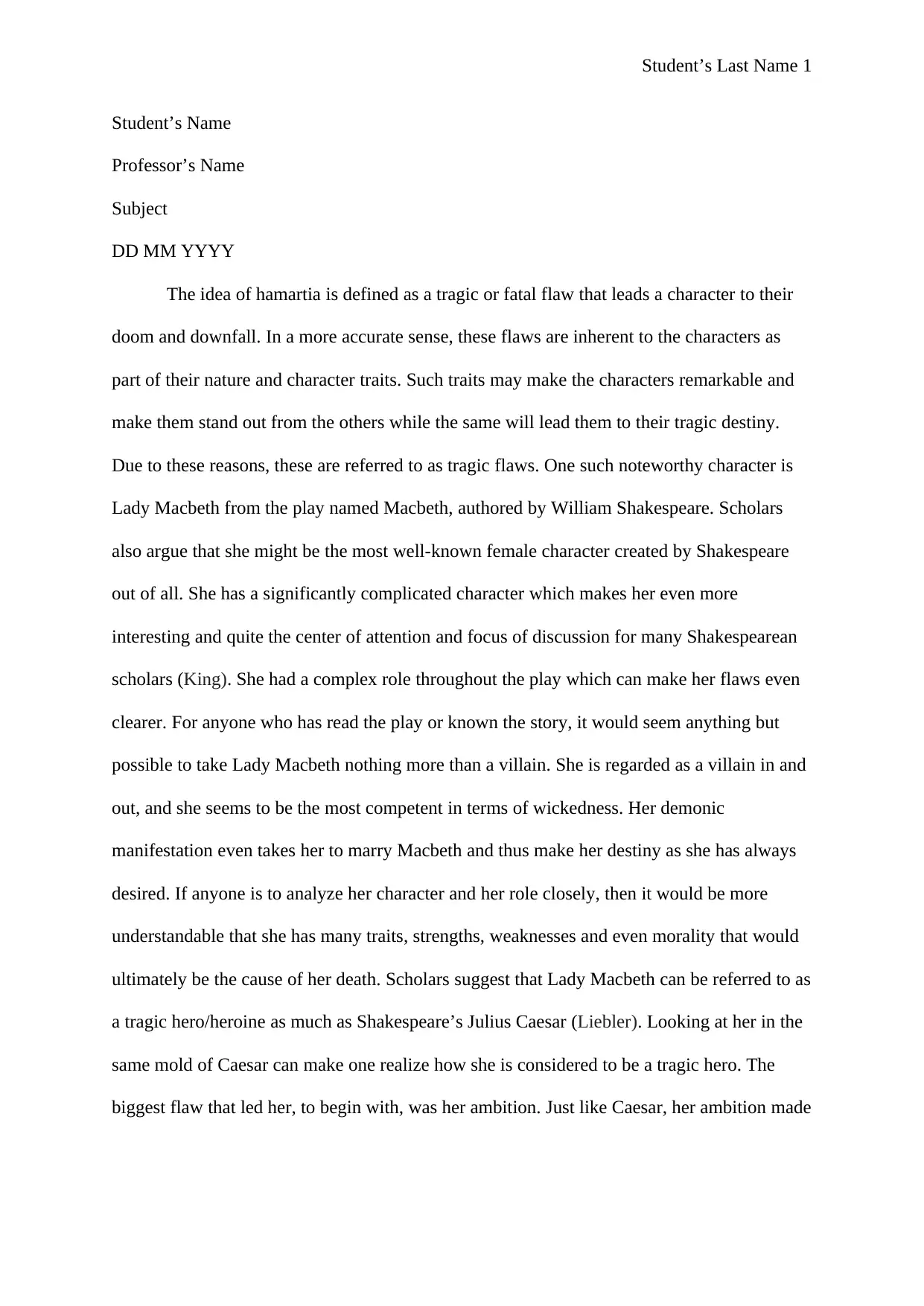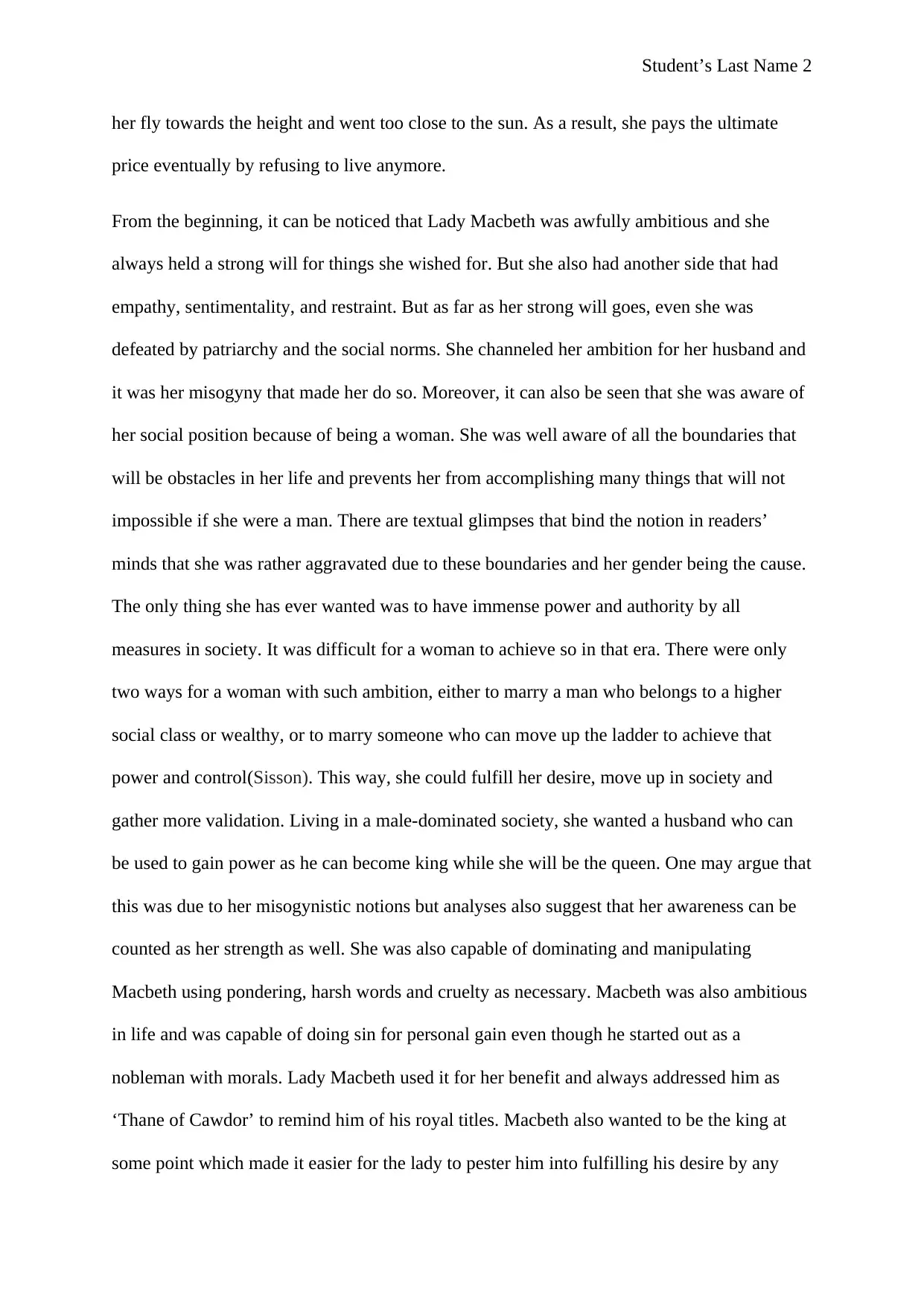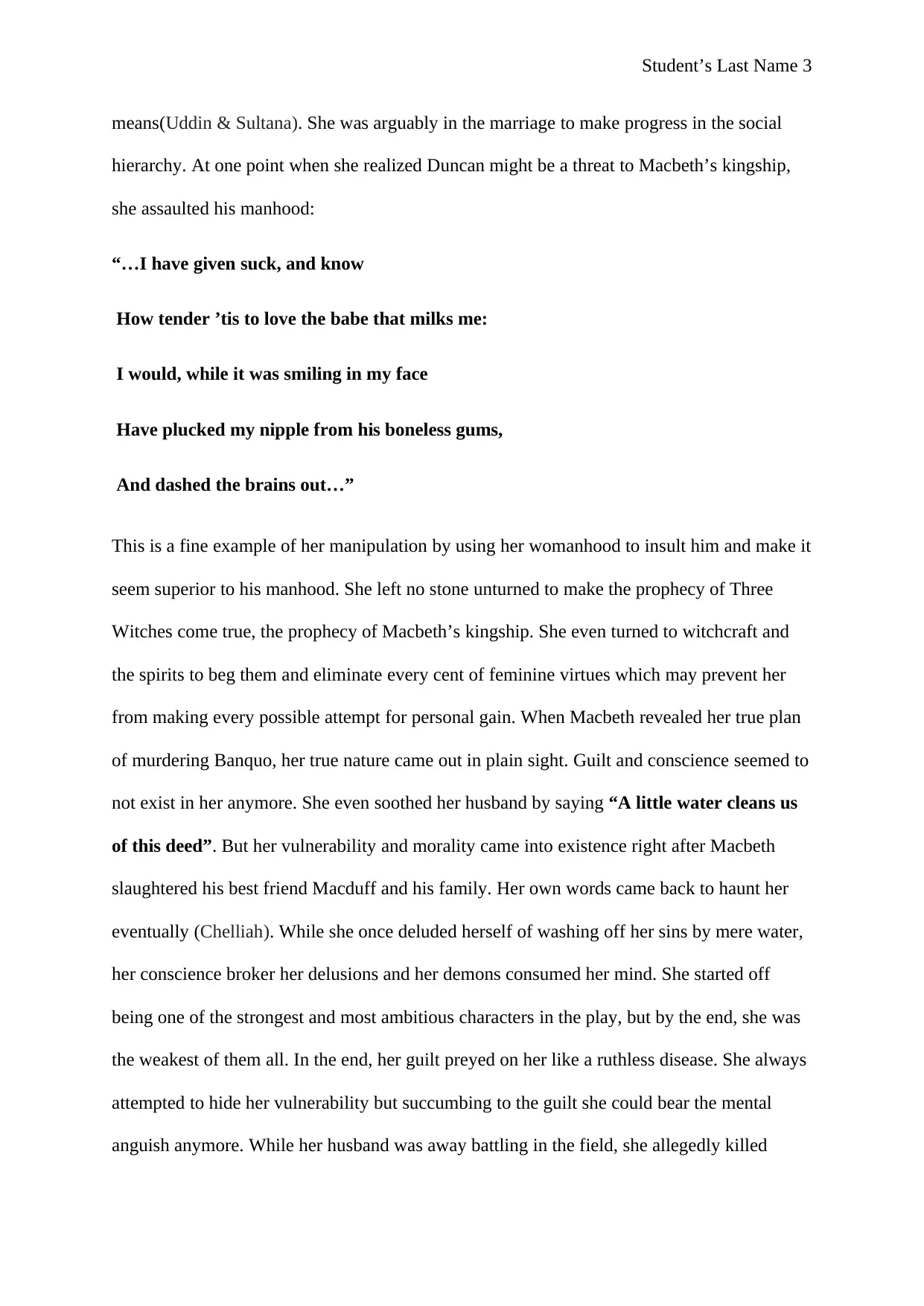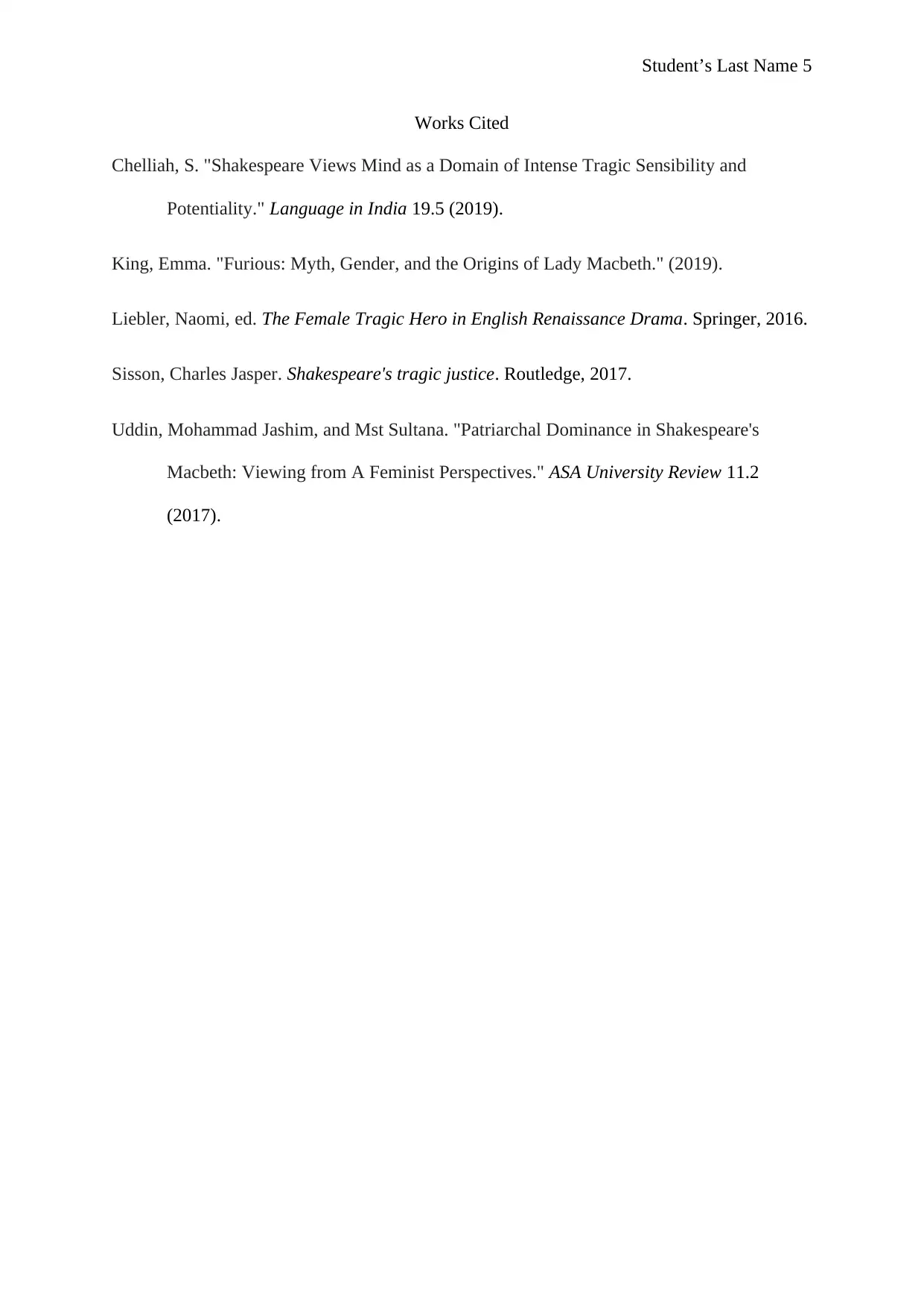Analyzing Lady Macbeth's Hamartia: A Tragic Heroine in Macbeth
VerifiedAdded on 2022/08/19
|5
|1294
|10
Essay
AI Summary
This essay delves into the character of Lady Macbeth in William Shakespeare's Macbeth, examining her as a tragic heroine driven by ambition and a desire for power. The analysis explores her hamartia, or tragic flaws, including her ambition, manipulation, and eventual downfall. The essay highlights her complex character, her use of manipulation to influence Macbeth, and her awareness of the societal constraints placed upon her as a woman. It traces her journey from a strong, ambitious figure to a character consumed by guilt and mental anguish, ultimately leading to her tragic end. The essay references scholarly arguments and textual evidence to support the interpretation of Lady Macbeth as a tragic figure whose ambition and flaws ultimately lead to her destruction, similar to other tragic heroes like Julius Caesar. The conclusion emphasizes her tragic fate, highlighting her loyalty to her ambition and her husband, thus solidifying her role as a tragic heroine.
1 out of 5










![[object Object]](/_next/static/media/star-bottom.7253800d.svg)